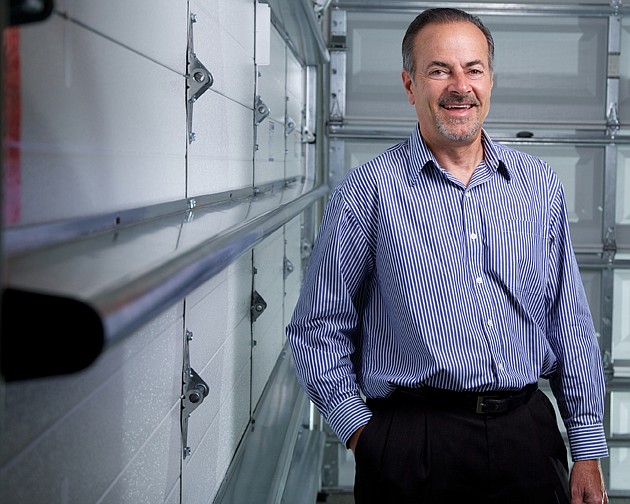- November 24, 2024
-
-
Loading

Loading

George Ebel is like many older entrepreneurs on the Gulf Coast.
The 60-year-old owns Action Automatic Door & Gate, a Fort Myers company that has built a sterling reputation installing automated garage doors and gates in the region.
“I started this thing 40 years ago,” says Ebel, who launched the company when he was a college student with $100. “It was just beer money,” he says with a chuckle.
Ebel grew the business into a successful franchise that generated $12 million in annual revenues during the height of the real estate boom. The company survived despite the downturn, albeit on 40% less revenue today.
But now that the company is growing again (sales are up 33% so far this year), Ebel's thoughts are moving from survival to succession.
Like many people in his generation, Ebel doesn't want to stop working altogether. He worries that if he sells the company the new owners won't want him around, and he'll have to make the proceeds last decades in retirement. “It concerns me greatly not to be working,” Ebel says. “I don't want to stop getting income.”
Ebel has the idea to sell the company to his best employees, hoping they eventually can buy him out and continue to employ him in a reduced capacity. “I still want to be in the business, but on my terms,” he says.
Ebel sold a business to an employee in the past. He started Action in Toledo, Ohio, and expanded to the Fort Myers-Naples area when he moved here full-time in 1981. “I left it with two guys to manage it,” Ebel says, eventually deciding to sell it to longtime employee Bob Bollin.
To do that, Ebel created an informal “shadow stock” for the Toledo company that allowed Bollin to buy into it over the years using profit sharing.
Ebel did that by agreeing to share 40% of the annual profits with Bollin in return for him managing the Toledo operation successfully. Bollin would get 10% of profits in cash each month, another 10% in cash at the end of the year and 20% in shadow stock of the company. “We kept a separate ledger of how much of it was his,” Ebel says.
The shadow stock arrangement between Ebel and Bollin was an informal handshake agreement. There were no formal contracts signed and no lawyers hired to draft the agreement, which Ebel and Bollin started in 1990. Six years ago, Bollin had amassed enough shadow stock in the business that he was able to buy the rest of the company from Ebel.
Ebel knows that such a deal would be hard to replicate again, in part because he and Bollin had developed a strong bond of trust that didn't require formal agreements. “We were lucky to stay together,” Ebel says, looking back.
With the proceeds from the Toledo business as well as more time on his hands, Ebel developed new passions for drag racing and learning to fly. But his attention quickly turned to the recession as new-construction business collapsed shortly after he sold the Toledo company. “We were just thinking about surviving,” he says.
But now that the recovery is at hand, Ebel is considering selling his Florida company to trusted employees. He's thinking about creating a formal employee stock-ownership plan, but he's not yet sold on that strategy. Ebel recently started a profit-sharing plan with the top five managers among his 48 employees. “I'm watching to see who the leaders are,” he says.
Ebel says he could see himself working another decade. “I don't even feel 60,” he laughs. “I could go 10 or 15 years, but look at how fast that goes by.”
For now, he tells employees to take on more responsibility and he delegates decision-making to them, too, with the idea that Action Door could be their company one day. “I make it common knowledge,” he says. “You know what, guys? It's your turn.”